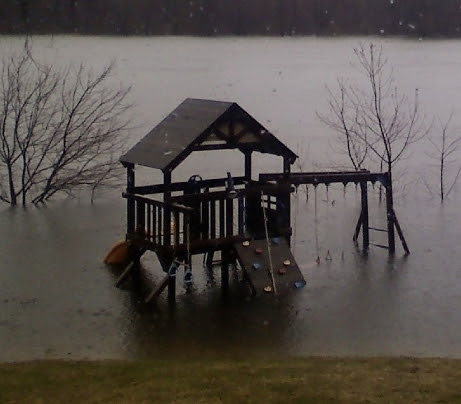
Dear Supporters,
The Coalition continues to challenge the 300-unit development with 80% of the units to be rented at upmarket rates. Please read the article in this e-mail to get our perspective on the events of the last month and to learn about a new legal action. Also, please save the evening of Monday, December 1st to attend the Belmont Board of Selectmen meeting where the Belmont Uplands/Silver Maple Forest is currently scheduled to be on the agenda. Specific times will be sent as soon as they are known.
A copy of the formal complaint and other information on the Coalition’s website.
Please consider writing or calling the Belmont Board of Selectmen asking them not to issue a building permit to the developer until all the stormwater issues raised in the Plaintiff’s recent complaint have been resolved. Specific language for these requests can be found in the summary below. Please also consider making an online contribution to the legal fund at any level so that we may continue our efforts.
The Coalition to Preserve the Belmont Uplands and area residents continue to hold steadfast to their belief that such a large development in such a sensitive area must meet all the regulations. A susbstantial acreage of Silver Maples remain on land owned or controlled by the State's Department of Conservation and Recreation (DCR). However, Coalition experts, DCR, and the Belmont ZBA believe that the light and noise from 5 four-story buildings in the midst of this forest and close to Little River will have a significant impact on of wildlife in the forest and the entire 120 acre Alewife Reservation.
Please feel free to contact us should you have any questions.
Allison Lenk and Idith Haber,
Coalition to Preserve the Belmont Uplands

March 2010 flooding with Silver Maple Forest in the background
Coalition Launches New Legal Challenge to Belmont Uplands Development
On Friday, October 10, fourteen residents of Belmont filed a complaint in Middlesex Superior Court against AP Cambridge Partners II and the government entities with the legal authority to protect the environment. The complaint states that there will be irreparable harm to the environment if the State’s Department of Environmental (DEP) protection and Town’s Office of Community development do not enforce the regulatory requirements of the Federal Clean Water Act, Massachusetts Clean Waters Act and the Belmont Stormwater Management and Erosion Control By-Law.
The Plaintiff’s action against the developer and government entities was filed under the Environmental Citizens Suit Act as it enables ten or more residents of the Commonwealth (in this case, residents of Belmont) to file a civil suit in Superior Court to prevent damage to the environment. The definition of “damage to the environment” includes violations of laws, regulations, or by-laws that regulate water pollution, impairment of rivers, streams, flood plains, lakes, ponds or other water resources. The Plaintiff’s complaint asserts that the developer must participate in the surface water discharge permit program required by the Massachusetts Clean Water Act and apply for a stormwater discharge permit as required by the Town of Belmont’s Stormwater By-Law
At a hearing on Wednesday, October 15, 2014 Plaintiffs sought a preliminary injunction to preserve the status quo and prevent activities that would damage the environment while the parties submit evidence and arguments and the Court considered their complaint. At the end of that hearing, Justice Miller advised that she would allow additional legal documents to be submitted through Thursday, October 16th. The Justice further stated that she understood that time was of the essence and would issue a decision as soon as possible, but that her schedule precluded her from making a decision until the following week.
Apparently after seeing the Plaintiffs’ arguments in their written submissions on that Thursday, the developer did not want take a risk that the Court would grant a preliminary injunction. The developer proceeded to rapidly cut the trees on Friday and Saturday, days on which the Justice stated she would not be in Court. On Saturday, a member of the public reported that the trees were being cut as fast as one per minute, without stopping to take away the felled trees before new ones were cut. The Plaintiff’s attorney warned the developer’s attorney that these actions were completely improper and an attempt to undermine the authority of the Court. When the Court reopened on Monday, October 20th, the Plaintiffs requested and successfully won a temporary restraining order from Justice Miller to stop the developer’s improper site clearing. However, on Tuesday, October 21, the Justice denied the preliminary injunction on the grounds that Plaintiffs did not meet some of the high standards required. She also rescinded her restraining order thereby allowing the developer to proceed with site preparation.
Plaintiffs still plan to vigorously pursue the merits of their claims in the Superior Court. In the meantime, it would be improper for The Town of Belmont to issue a building permit since the state and local permits currently being considered by the Court are prerequisites for a building permit. Coalition supporters are encouraged to make a strong request to the Board of Selectmen to ask the office of Community Development not to issue a building permit until the matter is resolved.
Belmont’s Stormwater By-law goes further than the State’s stormwater regulations by including additional, stricter standards. The by-law, which applies to disturbances greater than 1 acre, prohibits “change[s] to the existing conditions of abutting properties from any increase in volume of stormwater runoff”. In other words, new, large developments cannot discharge more stromwater from a site than occurs naturally. Based on current plans, the Uplands development will generate an additional 34,638 cubic feet of water over the naturally occurring conditions during the 24-hour, 100-year storm. The developer’s plans predict that this added water will raise the level of Little Pond by 22% compared to its naturally occurring flood level in such storms. Therefore, the development is likely to exacerbate the existing severe flooding situation. Enforcement of the by-law is necessary to prevent the flooding of basements in the Winn Brook neighborhood. Without the by-law, the 300-unit development with its 462 parking spaces would effectively be using Little Pond neighbors’ properties and the Alewife Reservation for flood storage.
The developer was already allowed to override local zoning and plan for 300 units (80% of which will be rented at upmarket rates and 20% labeled as “affordable”) because of the State’s Affordable Housing Law, commonly known as Chapter 40B. Plaintiffs contest the developer’s assertion that Chapter 40B allows the development to ignore the Stormwater by-law, a by-law intended to protect public health and safety and required by Federal and State regulations. Nothing in Chapter 40B contemplates such unwarranted free license to degrade the environment to the detriment of the health, safety, and property of Belmont’s residents.
Furthermore, the Massachusetts Clean Waters Act requires participation in the Stormwater Discharge Permit Program for any project discharging stormwater through a conveyance (in this case a channel) owned by the Department of Conservation and Recreation (DCR) in Alewife. As part of their defense, the developer’s attorney claimed that no stormwater will enter this channel. According to one observer’s recollection, the developer’s attorneys stated at that all the stormwater will remain in the Uplands. This statement lies in stark contrast to the development’s stormwater drainage plan submitted to the Town of Belmont that clearly states that they plan drain stromwater into the DCR-owned channel. The Town of Belmont’s answer to the Plaintiffs’ complaint filed with the Court on November 7, 2014, states “The Town admits that stormwater from the development will be directed to stormwater management structures and conveyances that eventually discharge to Little Pond.”
Both the State’s DEP and the Federal EPA have recognized that pollutants, particularly phosphorus from stormwater runoff from large, paved development sites are a major point source of pollution that impairs water resources. The stormwater from the development will discharge into Little Pond, which already receives waters from impaired waterways that contain contaminants such as E. coli from raw human sewage and phosphorus. The DEP’s previous review of the development under the Wetlands Protection Act that was under appeal for six years did not take into account the status of the receiving waters to the development's stormwater discharges.
For these reasons, 14 local residents have boldly stepped up and undertaken this legal action despite previous unsuccessful attempts by the developer to have the Courts award its legal costs. This is a testament to the seriousness of the pollution and flooding problem that exists and the dangers of placing such a large development in the midst of this delicate situation. During hot months, toxic algae has bloomed in Little Pond as a result of a phosphorus overload from existing stormwater runoff it receives from a large part of Belmont as well as Arlington’s Spy Pond. This pollution poses a health risk for the public at large, and especially for local residents and degrades the wildlife habitat of the Alewife Reservation.
We hope our supporters will help the Plaintiffs to continue their legal efforts to protect the environment and all of our health and safety.
Copyright © 2014 Coalition to Preserve the Belmont Uplands, All rights reserved.
You are receiving this email because you opted in at our website or sign-in form.
Our mailing address is:
Coalition to Preserve the Belmont Uplands
99 Oliver Rd.
Belmont, MA 02478
Article preserved on 2014-11-16 from
http://us2.campaign-archive1.com/?u=fd7fec48af3440daf62db3cd1&id=98a35a8ad3&e=3ad57adc48